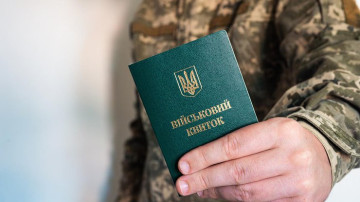I am studying in the third year of the State University of Economics and Technology.I specialize in contractual, economic and corporate law, in particular, I provide consultations and write articles.
The rules of INCOTERMS (International Commercial Terms) are a standardized system of terms used in international trade to determine the terms of delivery of goods. These rules determine the duties and responsibilities of the seller and the buyer at various stages of transportation of goods from the place of delivery to the place of destination. The use of INCOTERMS rules in international trade agreements helps to avoid misunderstandings and conflicts between parties, standardizing delivery conditions and reducing risks for both parties.
Here are some features of their application:
Standardization of delivery terms: INCOTERMS harmonize delivery terms, which avoids misunderstandings between parties and creates a common medium for international trade agreements.
Definition of responsibilities and risks: INCOTERMS clearly define when and where ownership and risk of the shipment of goods pass to the sender and receiver. This helps to avoid conflicts and misunderstandings.
Simplifying contracts: With standardized terms, it is easier for parties to contract because they can simply specify the INCOTERMS clause they need without detailing every aspect of the delivery.
Consideration of international trade practices: INCOTERMS reflect the most common practices and standards of international trade, so their use helps to solve problems related to geographical, cultural and legal differences.
Minimization of risks and costs: The correct choice of INCOTERMS provisions can help the parties to minimize the risks and costs associated with logistics, insurance, customs procedures and other aspects of international trade.
When using INCOTERMS rules, it is necessary to agree on the following key aspects between the parties to the agreement:
Selection of a specific INCOTERMS term: The parties must agree on a specific INCOTERMS term that reflects their requirements and wishes regarding the terms of delivery of goods.
Place of delivery: Identification of the specific place where responsibility for the goods passes from the seller to the buyer.
Distribution of costs: Establishing which of the parties makes payments for transport, insurance and other costs associated with the delivery of goods.
Risk allocation: Agreeing on who bears the risk of loss or damage to goods at each stage of delivery.
Responsibilities of the parties: Defining the responsibilities of the seller and the buyer at each stage of delivery, such as the organization of transport, customs clearance, insurance, etc.
Insurance of goods: Coordination of insurance coverage for goods during transportation, as well as determining which of the parties pays the insurance premiums.
Customs formalities: Establishing obligations regarding customs clearance and payment of customs taxes and fees.
Terms and conditions of delivery: Coordination of terms and conditions of delivery of goods, including delivery date, route and other details.
Here are some tips on applying INCOTERMS rules in international contracts:
Carefully consider the needs of your business: Before choosing a specific INCOTERMS term, consider the specifics of the business, the geographical and logistical features of international deliveries, as well as the requirements for the control of goods and risks.
Communicate with your counterparty: Before entering into a contract, discuss the terms of delivery with the counterparty. It is important to understand their expectations and needs in order to choose the most suitable INCOTERMS term.
Consider logistical aspects: Choose an INCOTERMS term that takes into account logistical aspects of delivery, such as the location of the enterprise, destination, availability of transport infrastructure, etc.
Allocation of risks and costs: Carefully study the allocation of risks and costs between the parties to the agreement. Discuss who is responsible for insurance, customs, shipping and other costs.
Use standard documents: Maintain unity and reduce the potential for misunderstandings by using standard contract forms that include the selected INCOTERMS term and its definition.
Consult with experts: If you are not sure which INCOTERMS term best suits your business needs, consult with logistics or lawyer who have experience in international trade.
Lawyer consultation in concluding a contract with an international counterparty:
Legal services may be needed at every stage of concluding a contract, starting from checking counterparties using registers and drafting a contract, ending with its signing. The lawyer help will ensure compliance of the content of the contract with all the requirements of the law and the interests of the parties, conduct a legal analysis of the situation and determine the necessary INCOTERMS terms. Therefore, the lawyer services is a reliable tool for building successful contractual relations.
































